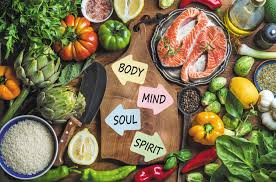
The type of nutrients we ingest in our foods is a decisive factor in our well-being, but sometimes for different reasons we neglect the quality of what we eat and the effects are very negative for general health and personal development.
A proof of this is in the results of a recent scientific investigation that linked between the food we eat and the mood, particularly regarding emotions such as anxiety and the feeling of fullness. The statistical study inquired in a population of healthy adults about their lifestyle and well-being habits, including food, physical activity and their opinion about their mental health.
From the results, a cross-section of information was created with the conditions of development and well-being of the brain and the nervous system in two great stages of life: between 18 and 29 years of age, when the brain has not reached its maturity and after 30 years of age, when the brain is already fully developed and, therefore, it is essential to take all the necessary steps to prevent its deterioration.

Among the most notable results, it was found that people between 18 and 29 years of age who consume “fast food” at least 3 times a week also have high levels of stress because this type of food is very high in saturated fats and omega-6 fatty acids that cause inflammation in various organs of the body and also, anxiety, stress, and depression.
The study also concluded that in the same age period, it seems that even moderate consumption of meat (that is, up to 3 times per week), is associated with a similar emotional state of tension and anguish.
On the contrary, those people who include in their diet, essential components for the structure of the brain, such as polyunsaturated fatty acids and minerals such as zinc or magnesium, in addition to vitamins B, C and E show significant overall better health and well-being. Among the foods recommended are whole grains, green leafy vegetables (spinach, chard, etc.) and even dairy products.

As for those aged 30 and over, the emotional states associated with anxiety and stress have a direct link of foods with a high glycemic index, such as refined flours and sugars. On the contrary, the consumption of foods rich in antioxidants (fruits and vegetables in general, nuts, and seeds) seems to have a positive effect on our mental health, to the extent that they fight free radicals that are released in the natural process of aging.

